Empowering Affirming Care: Enhancing Cervical and Anal Cancer Screening for LGBTQIA+ Individuals

Lauren Abern, MD
Many lesbian, gay, bisexual, transgender, queer, intersex, asexual (LGBTQIA+) people face barriers to care that can limit their ability to access screening for HPV related cancers. Educational interventions for both healthcare providers and patients are needed to ensure screening and appropriate follow-up are performed for this community. In this session we will focus on improving cervical and anal cancer screening in the LGBTQIA+ population.
(Each for 12 minutes)
The importance of cervical and anal cancer screening for LGBTQIA+ individuals
Speaker: Lauren Abern, MD
Barriers to cervical and anal cancer screening for LGBTQIA+ individuals
Speaker: Karla Maguire, MD
Anal cancer screening for LGBTQIA+ individuals
Speaker: Chance Krempasky, FNP, WHNP
Cervical cancer screening for LBGTQIA+ individuals
Speaker: Elizabeth (Betsy) Collins, MD, MPH
Strategies to improve the clinical experience for LGBTQIA+ individuals undergoing anal and cervical cancer screening
Speaker: Beth Cronin, MD
Ten Tips for Improving the Patient Experience during Colposcopy

Patty Cason, MS, FNP-BC
Evaluation and management of cervical disease is (at best) stressful and uncomfortable for the patient. This talk provides patient-centered tips for applying principles of Trauma Informed Care that are designed to minimize pain and anxiety and improve the patient’s experience during colposcopic evaluations.
The critical role of colposcopy in cervical cancer elimination goals: Creative strategies for challenging setting

Moderator: Julia Gage, PhD, MPH
While screen-and-treat strategies have been demonstrated to reduce cancer risk in settings with limited colposcopy resources, colposcopy will remain critical for cancer control in individuals not eligible with ablative therapy. This session will explore the use of strategies for improving access to colposcopy services in limited resource settings in the US and the global south.
(Each for 15 minutes)
Challenges & Solutions to Access Colposcopy for Indigenous Communities at Farthest Reach
Speaker: Bethany Berry, CNM
Bringing Change to a State Colposcopy Program: Alabama’s Rapid Turnaround to Meet the Demand in Rural Settings
Speaker: Gary Pugh, DO
Colposcopy Training for Settings with Greatest Need, Solutions for the US-Mexico Border and Beyond
Speaker: Mila Pontremoli Salcedo, MD, PHD
Challenges Accessing Colposcopy in Population-based Cervical Cancer Programs in Latin America
Speaker: Jose Jeronimo, MD
Diagnosis and Management of Cervical Squamous Intraepithelial Lesions in Pregnancy and Postpartum

Margaret Long, MD
While pregnancy and postpartum care provide an important opportunity for cervical cancer screening and follow up of lesions, aspects of abnormal result management require adjustment during this unique time. We will focus on how management strategies differ from those outside of pregnancy, the rationales for these and some clinical pearls.
The Screening and Treatment of Cervical Cancers and other HPV-Related Diseases in Indonesia
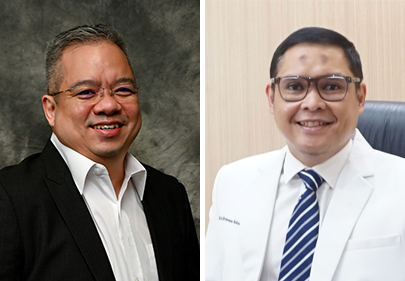
Moderators: Joe Ng, MD and Dr Brahmana Askandar, President of the Indonesian Society of Gyn Oncology, INASGO
Join us on this hour-long online educational session on cervical cancer prevention, where we will be taking a closer look at the Indonesian experience. Indonesia, like many developing countries, faces unique challenges in the fight against cervical cancer, challenges that are echoed across the globe in regions with limited resources. Despite significant progress in some areas, barriers such as access to screening, healthcare infrastructure, and public awareness continue to hinder efforts towards cervical cancer elimination. In this session, we will explore the specific hurdles Indonesia faces, discuss successful strategies that have shown promise in overcoming these obstacles, and hear directly from experts on the ground. Finally, we will focus on Indonesia’s “wishlist” for collaboration with developed countries, outlining the essential support and resources needed to accelerate the global movement toward cervical cancer elimination.
(Each for 10 minutes)
Cervical Cancer in Indonesia: Current Status, Challenges, and the Way Forward
Speaker: Brahmana Askandar, MD, PhD
Integration of HPV Vaccination into the National Immunization Program: Achievements and Challenges
Speaker: Tofan Widya Utami, MD, PhD
Advancing Colposcopy Training and Education in Cervical Cancer Prevention
Speaker: Syamel Muhammad, MD, PhD
Improving Access to Diagnosis and Management of Preinvasive Cervical Lesions in Peripheral Areas
Speaker: Heru Priyanto, MD, PhD
Could HPV Primary Screening Be the Way Forward for Indonesia’s Archipelago Geography?
Speaker: Andi Darma Putra, MD, PhD
Exploring the Possibility and Acceptability of Self-Sampling for Cervical Cancer Screening in Indonesia
Speaker: Fitriyadi Kusuma, MD, PhD
Genitourinary Syndrome of Menopause (GSM)

Peter Schnatz, DO, MBA, FACOG, FACP, NCMP
Objectives:
1. Define & discuss the signs / sx of genitourinary syndrome of menopause (GSM)
2. Review the prevalence of GSM & the impact on post-menopausal sexual health
3. Review the Vaginal Microbiome and its impact on GSM, vaginal health, & HPV
4. Review nonpharmacologic and pharmacologic treatment options for GSM
To Present Situations of Cervicovaginal Health in Latin America

Moderator: Carmen Irela Troya de Soto, MD
(Each for 15 minutes)
|
Cervical Cancer Screening in Colombia: Difficulties and Detection Strategies
|
Impact, Evolution and Current Status of the Application of the Vaccine Against the Human Papillomavirus: Experience in Mexico
|
Epidemiology of Cervical Cancer in Panama
|
|

Carlos Perez, MD
|
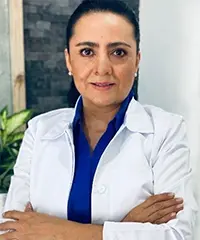
Elsa Diaz, MD
|

Dianelle Soto Troya, MD
|
|
|
Colposcopy Training and Scientific Education for CaCu Prevention in Latin America

Laura Fleider, MD
|
|
Topics in Cervical Cancer Prevention in Africa

Moderator: Alan G. Waxman, MD, MPH
|
Preinvasive Diseases and Lessons Learned: Kenyan Perspective
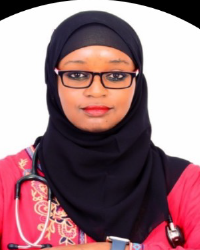
Anisa Mburu, MBChB, MBA, Mmed
|
Nurse-Led Cervical Cancer Prevention: Experience from Cameroon
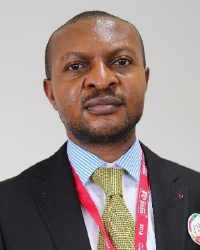
Simon Manga, RN, PhD
|
Building capacity of healthcare providers to address cervical cancer in Africa through distant learning: an innovative Tele-mentoring Program
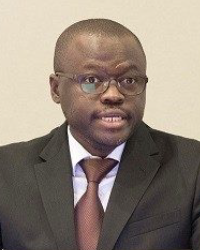
Joel Fokom Domgue, MD, MPH
|
Introduce Current Situation of the Cervical Cancer Screening, Colposcopy Training, HPV Vaccination, Perianal and Valvular Lesions, and HPV Infection and Vaginal Microetiology in China

Moderator: Chengquan Zhao, MD
|
Difficulties and strategies of cervical cancer screening in China
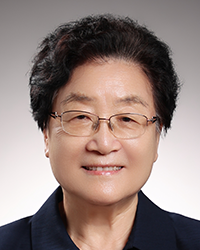
Lihui Wei , MD
|
Research and progress in the diagnosis and treatment of perianal precancerous lesions in China

Long Sui, MD, PhD
|
Colposcopy Training and Science Education of Cervical Cancer Prevention in China

Yun Zhao, MD, PhD
|
|
Progress of the diagnosis and treatment for vulvovaginal diseases in China
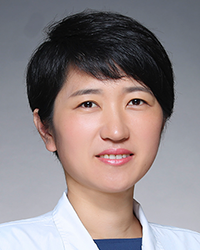
Qing Cong, MD, PhD
|
Current status and progress of HPV vaccine application in China

Mingzhu Li, MD, PhD
|
HPV infection and vaginal microecology, past, current, and future in China

Pengming Sun, MD, PhD
|
Edward J. Wilkinson Best Paper Award of the Journal of Lower Genital Tract Disease (JLGTD) Finalists
(Each for 20 minutes)
2024 Best Paper

Incidence and Risk Factors for Recurrence and Progression of HPV–Independent Vulvar Intraepithelial Neoplasia
Speaker: Féline O. Voss, MD, PHD Student
1st Top Article

Risk Factors for Lichen Sclerosus: A Case-Control Study of 43,000 Finnish Women
Speaker: Pia Halonen, MD, PHD
2nd Top Article

Defining the Longitudinal Risk of CIN 3+ for <CIN 2 Colposcopy for Patients Referred With High-Grade Cytology
Speaker: Sabrina Piedimonte, MD
|